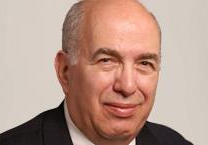A Skeptical View on ETFs
CFA Institute: Many investors may underestimate the risks associated with ETFs. What are they?
Rick Ferri, CFA: I think the biggest risk with ETFs is that they trade as a security separate from the underlying security. In 2010, we had the so-called flash crash, in which the ETF market completely fell apart. ETFs went to near zero in price, but the underlying securities didn’t go to near zero.
The liquidity risk happens because the authorized participants — the people who are creating and redeeming ETFs — step away from the market. We say that when they go out and have a cigarette, the whole ETF market collapses.
There are advantages and disadvantages to both ETFs and mutual funds. There seems to be a belief in the marketplace that ETFs are superior to open-end funds, and they’re not. I believe ETFs work for some people and not for others.
For traders, ETFs work because they trade during the day. Their trading helps make the markets efficient. However, that’s not what individual investors need to do. Trading generally hurts the performance of long-term investors.
I recommend open-end funds for long-term individual investors. They don’t have the liquidity risk that the ETF presents, which can cause discounts and premiums in prices. Traditional mutual fund investors always get the net asset value (NAV) of a fund at the end of the day.
There’s also a misconception that all ETFs are more tax efficient and that’s why individuals should use them. That is true with some equity ETFs and somewhat true with bond ETFs because of the way redemptions are done, but it’s certainly not true for ETFs that use derivatives. You might buy something that you think has a certain tax benefit because it’s being labeled as an ETF when, in fact, it doesn’t because it’s a grantor trust or limited partnership, rather than a 1940 Act fund.
This brings up another problem. A lot of securities are labeled as ETFs when they are not. Exchange-traded notes (ETNs) are lumped under ETFs, but ETNs are 1933 Act securities, not 1940 Act mutual funds, and they have many different features.
What drives the market for ETFs?
The easy stuff is done. The low-cost products that provide exposure to the US market or emerging markets — those funds are available. That type of investing is almost free now. So how do these companies make money?
I fear that index providers are too focused on licensing funds that cover a hot sector of the market rather than launching funds that have long-term viability. I also worry that good governance is lacking in the marketing of products. Slick terms such as “fundamental indexing” and “smart beta” are meant to confuse investors rather than educate them.
I’m being a bit cynical here, but ETFs produced for sales reasons can mean the fees on those funds are going to be high. In that sense, the ETF industry has become the mutual fund industry.
I wouldn’t touch 95% of the ETFs out there. They have to be interesting enough and low enough in cost to justify taking a position in them.
ETF providers often ask me, “What funds do you want? What do you need?” However, when I make a recommendation, the fund companies often see no money in it for them. The funds I want never make it to the market.
What do you look for in an ETF?
That’s a big question. I’m looking for unique risk, liquidity, low cost, and diversification to start. There has to be something unique about the asset class and about how a fund is being managed to squeak out unique risk. Then I look at diversification: Is the fund holding enough names? Is there enough trading in the ETF? Is the provider stable? What is the cost?
Many investors skip over these considerations. They lump all ETFs together. That’s a mistake. Some ETFs are much more expensive than they appear, and many are more expensive than open-end mutual funds.
What’s your recommendation to investors?
Investors must dig deep before selecting a fund. There are new tools to help, such as IndexUniverse ETF Analytics. This tool allows you to look at how indices are constructed and compare the liquidity of products that track those indices. Other products are offered by Morningstar and JP Morgan.
Do you believe the public is becoming more aware of ETFs?
Yes, but I’m not sure if it’s for the right reasons. There are a lot of advisers trading ETFs using tactical asset allocation strategies (also known as dynamic asset allocation, among other names). This is like jumping out of the frying pan and into the fire. The adviser couldn’t pick managers who picked winning investments, so now the advisers themselves are going to become the alpha generators? I don’t think so.
I believe education is lacking in the ETF industry. This raises the question of who is responsible for educating the public. Is it the index providers? Is it the fund companies?
In general, I’d say that the entire ETF industry is severely lacking when it comes to education. Neither the index providers nor the fund companies have committed to an industry-wide process for educating investors.
There isn’t a functioning ETF council or organization. There is ICI, the Investment Company Institute, which was formed as a consortium of open-end mutual funds, but there has been no real effort to organize the ETF side.
Frankly, I’d say CFA Institute has a golden opportunity to educate the industry because no one else is doing it with an unbiased voice. This blog is a good start, I might add.
Key Takeaways
- Investors tend to believe all ETFs are low cost. This is not the case.
- For individual investors, an open-end mutual fund may be just as good as or better than an ETF. This point often gets lost with all the enthusiasm about ETFs.
- Important things to consider in an ETF are unique risk, trading liquidity, and provider stability.
You should subscribe to Inside Investing here.
Photo Credit: Istockphoto/CSA_Images




Thanks for this blog. I think most people simply don’t understand the structure, liquidity, and total cost associated with ETFs. Owning ETFs in bull markets can provide a comfort, which can be a terrible surprise once tide goes away.
Thank you for your comment RG —
As you suggest, bull markets can create an unfortunate (and unwarranted) sense of security that can prove illusory. The best advice for avoiding that I’ve ever seen comes from my colleague Bob Stammers in an interview with the globe and mail. As he’d tell you, the key to not being surprised is making sure that your investment strategy is constructed in a way that’s mindful of your risk tolerance and financial goals.
Many thanks for reading! Best of luck in your financial journey.
Will
Interesting article, it seems that the other 5% if ETFs that you WOULD touch are Vanguard ETFs. Low cost, generally narrow spreads, broadly diversified, viable over long-term (building blocks coverage approach instead of hot trends), and they are a separate share class of the open end funds (so there’s no issues with them NOT being a 40 act offering–it also provides some benefits of scale).
In my experience, I have heard of the labelling ETPs (Exchange-traded products) as the broader investment class. Those are further broken down into ETFs and ETNs. I think the popularity of ETFs has lead people to using the incorrect umbrella term. This is potentially a problem when tax time comes around…surprise! Also, it’s important to know the risk trade offs you make with these products (credit risk in ETNs comes to mind).
Great article overall. It gives many investors things to think about that generally fly under the radar.
MKA —
Thanks for your perspective! I agree that the apparent simplicity of many ETFs can cause investors to forget the true complexity of the product.
Incidentally, our goal is to do just what you say in your last sentence: highlight things that fly under the radar. Thanks for reading!
Will
When you said “ETFs went to near zero in price, but the underlying securities didn’t go to near zero” you were talking about “flash crash” risk?
Thank you.
Are ETFs derivatives?
Hi Keith —
Thanks for your comment! ETFs are more easily understood as containers than derivatives: they’re essentially a structure that securities can be held in. Sometimes those securities are derivatives (as is the case with many “exchange traded note” structures) but the ETF itself is not.
Thanks for reading!
Will
Thanks Will.
Keith
The “GLD” ETF is supposed to be backed by gold, but my understanding is that large shareholders in GLD actually take delivery of the gold in it and drain the ETF. I would think that the ETF would hold a significant amount of phyiscal gold to back up the claims, but apparently it works more like the Federal Reserve and creates shares with a printing press.
Hi Brian —
I’m not sure if I can comment on a particular investment vehicle, but I think the concerns you raise are consistent with those raised in the article. Sometimes, the fine print of an ETF doesn’t quite map to what you’d expect from the title of it. Your best bet will always be to check out the prospectus and make sure you understand it, or hire an adviser who can help you.
Check out the prospectus for the GLD etf here. Also, please consider subscribing!
All best —
Will
“unique risk, trading liquidity, and provider stability.”
By unique, he means the same as any other exchange listed stock, future or option. Learning how to execute a trade without causing market impact is not a high bar for an investor to overcome, nor is it a “risk” specific to ETFs.